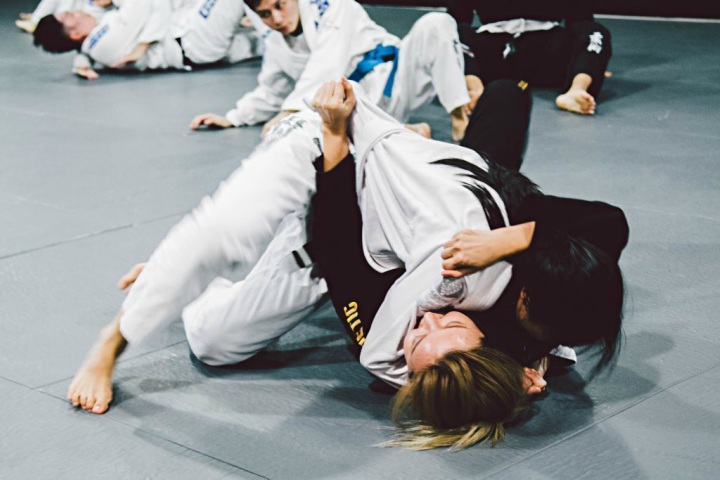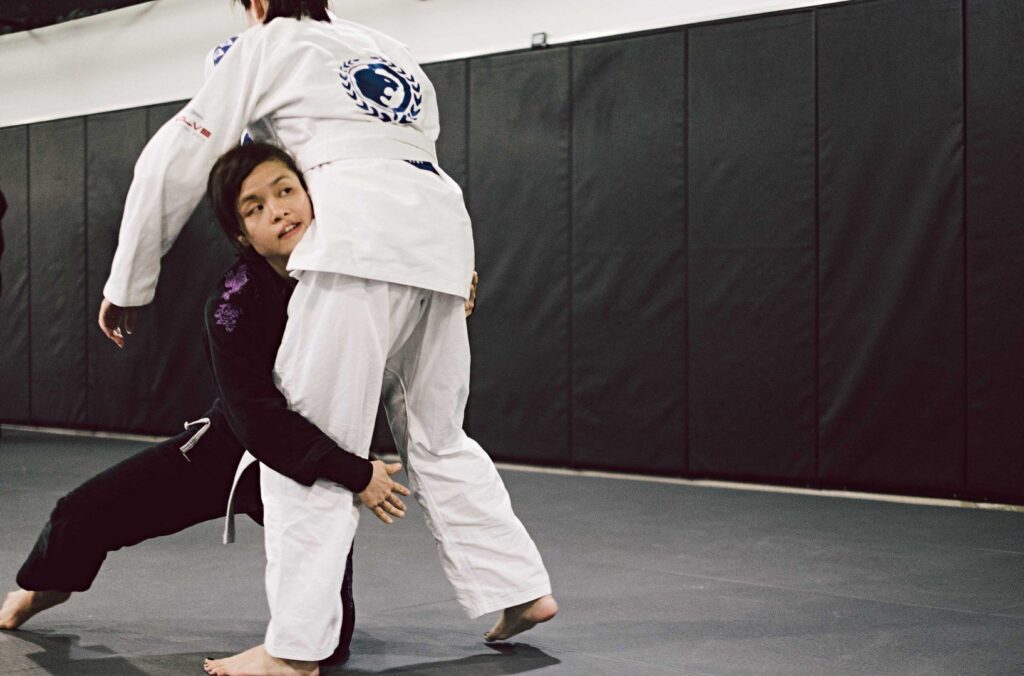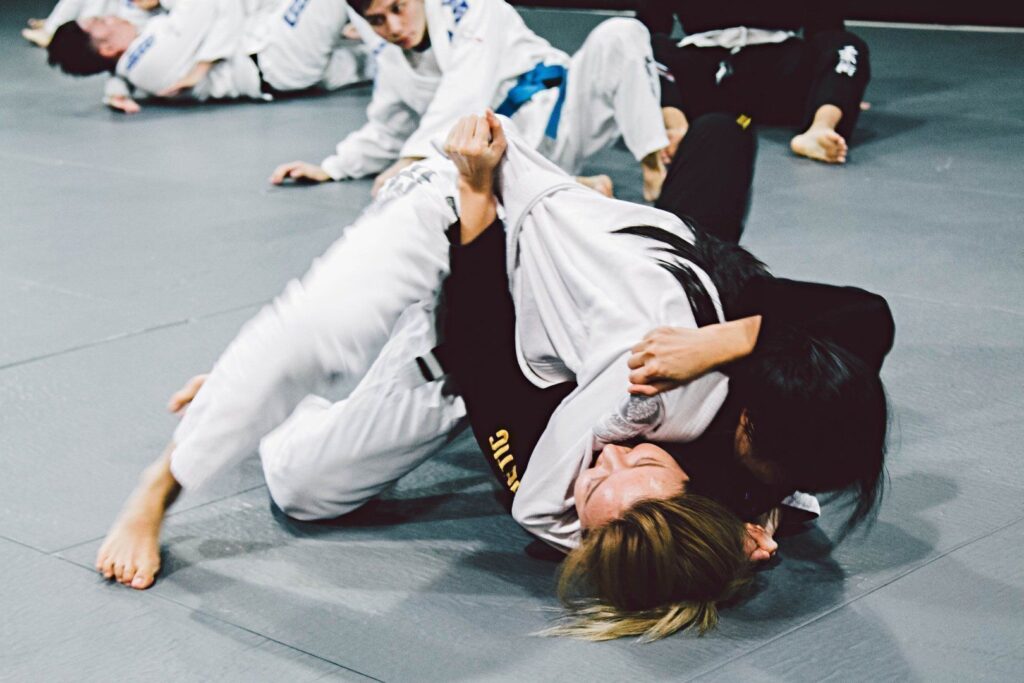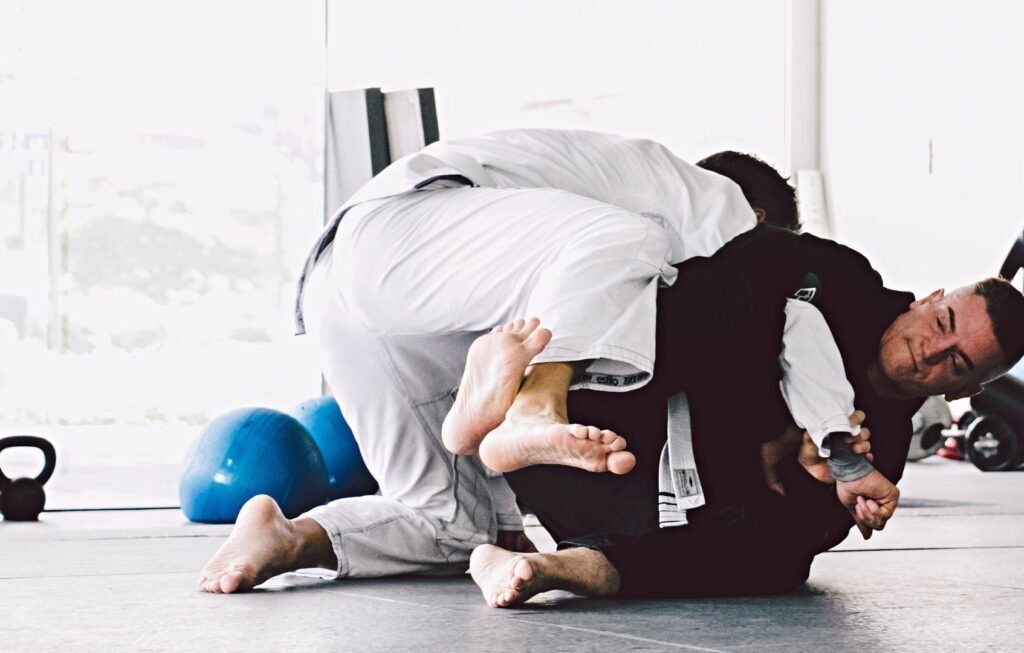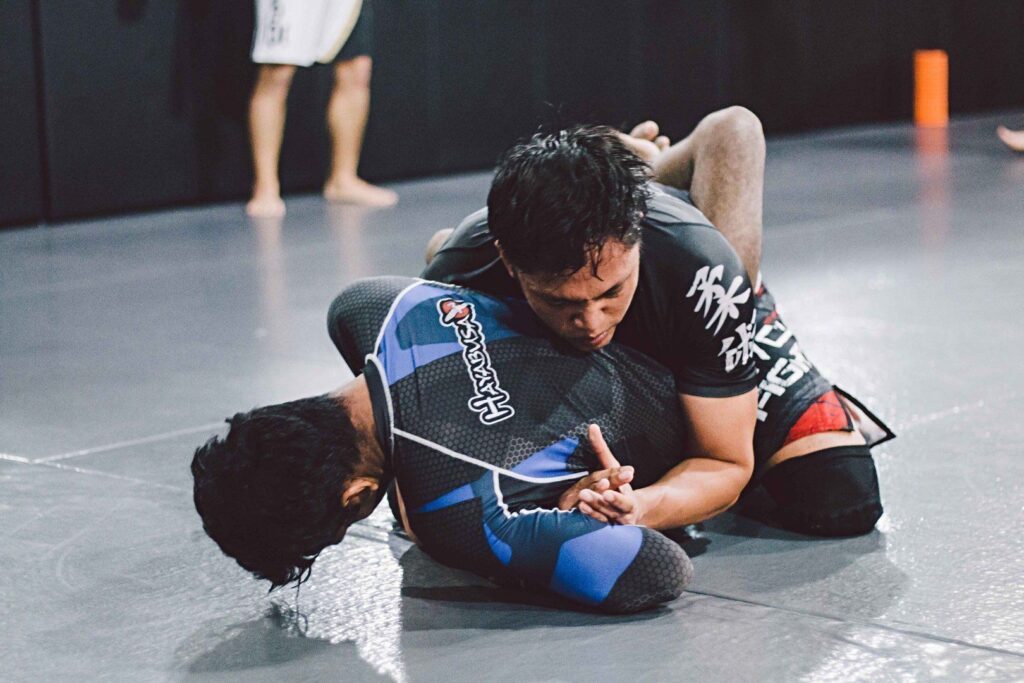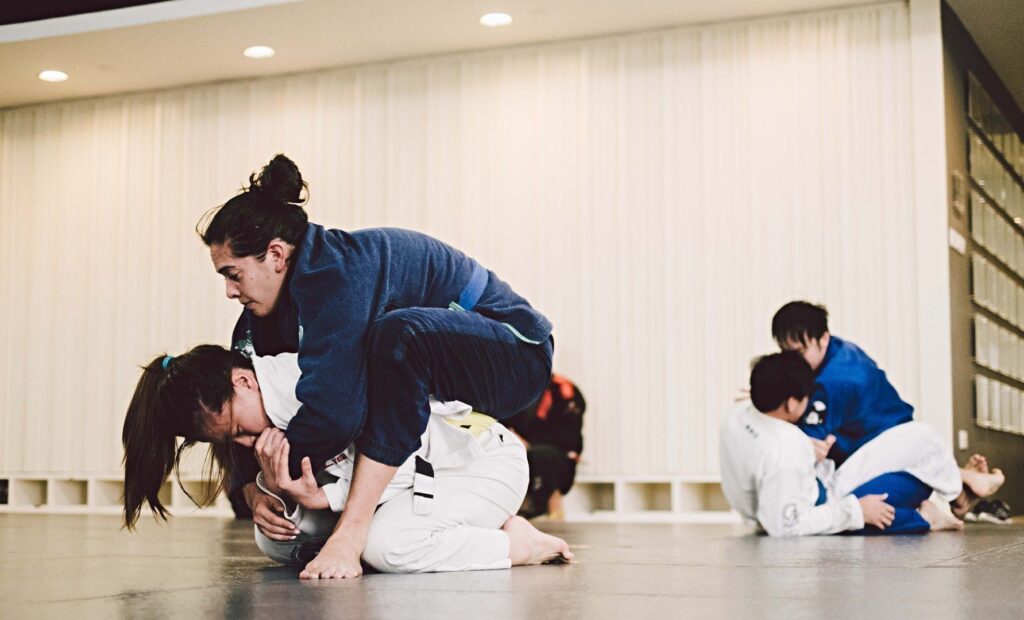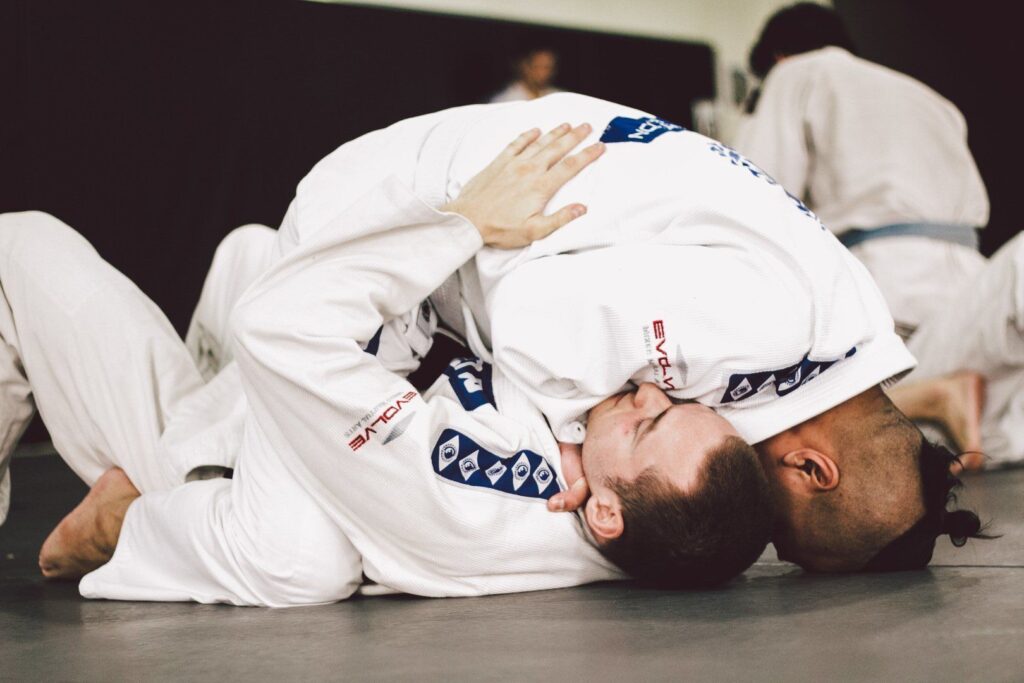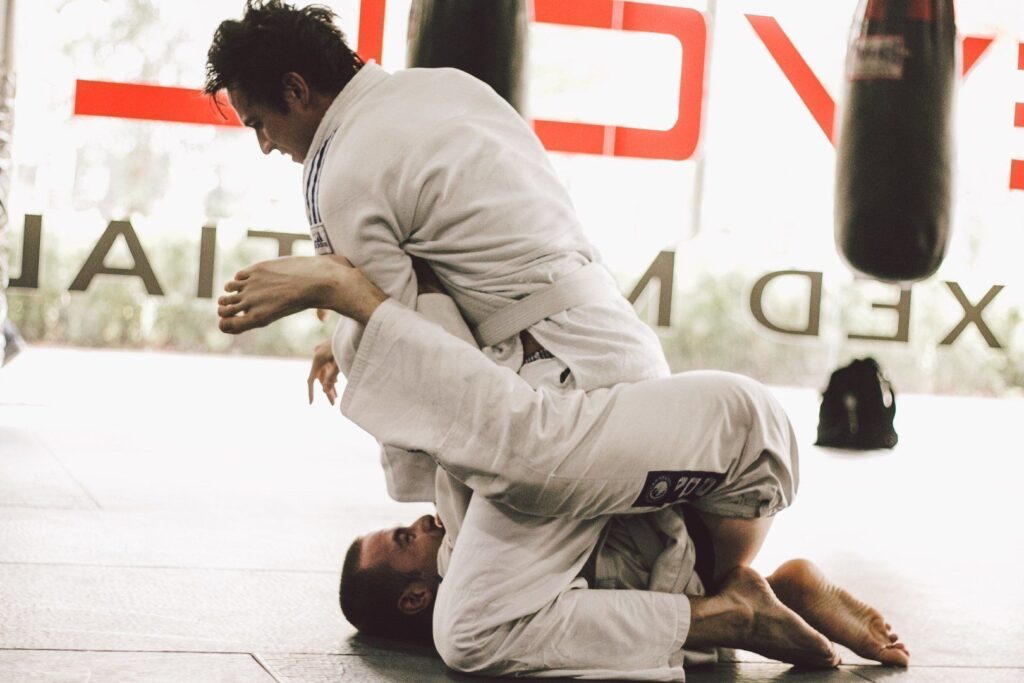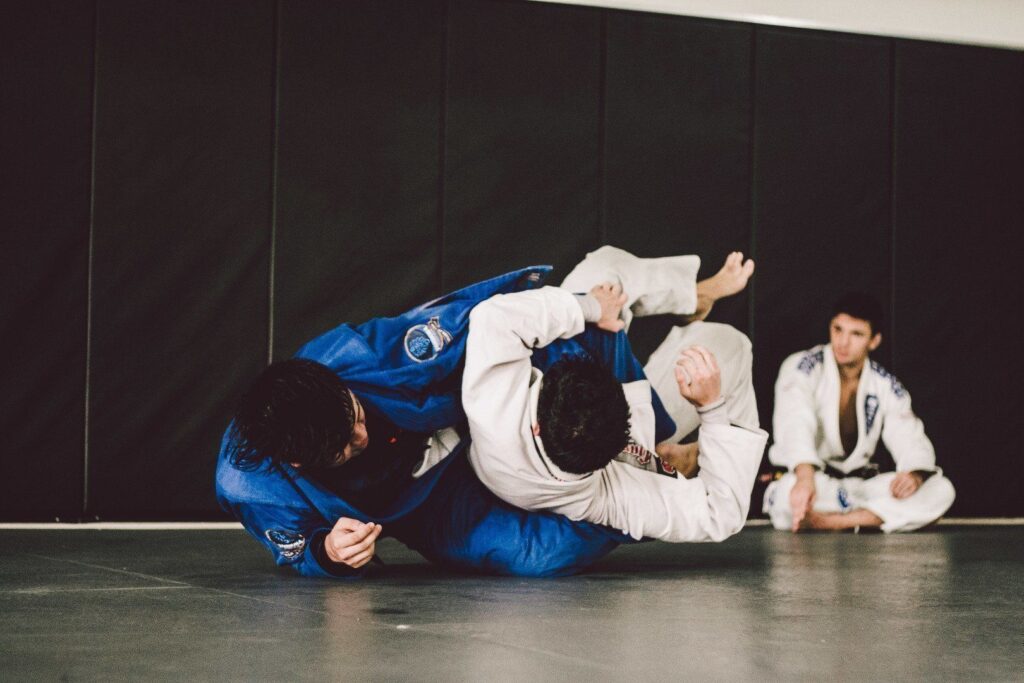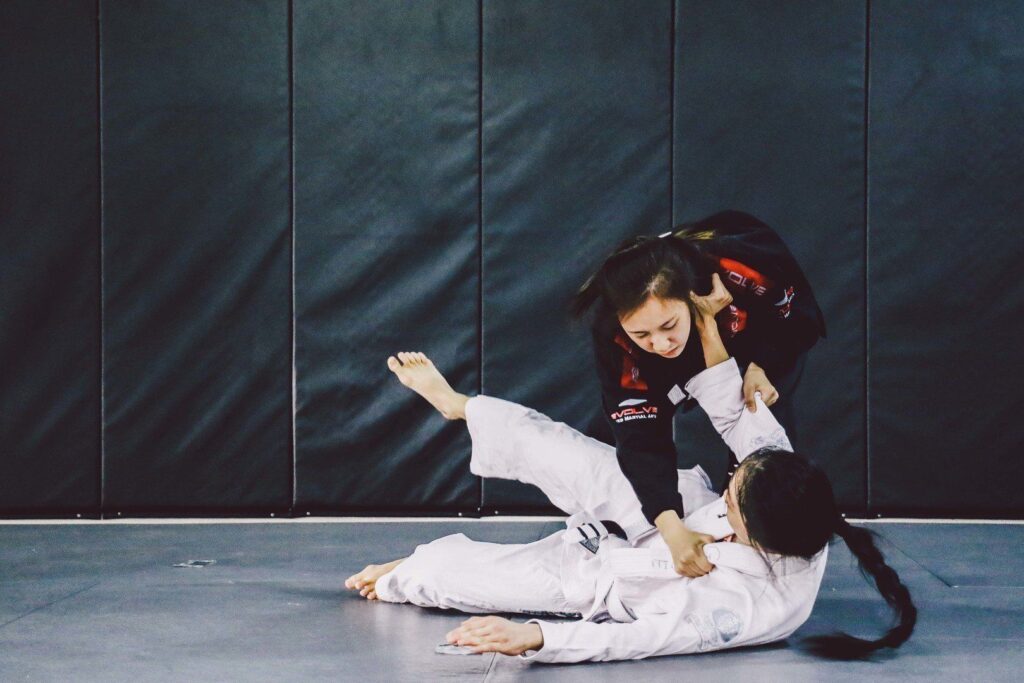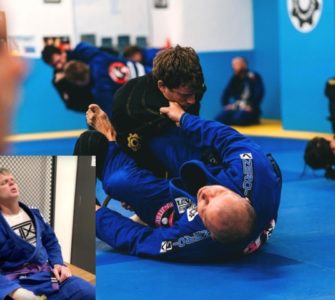GGuest post by Evolve MMA, Asia’s premier championship brand for martial arts. It has the most number of World Champions on the planet. Named as the #1 ranked martial arts organization in Asia by CNN, Yahoo! Sports, FOX Sports, Evolve MMA is the top rated BJJ gym in Singapore.
Every beginner BJJ student has mixed feelings about the first time they start sparring, especially if they’ve never practiced martial arts before. In fact, many students dread sparring because everything they’ve learned in class is finally put to the test, with the added pressure to do well. Some students look forward to sparring because of the same reasons – they’re eager to use what they’ve been taught and see how they work in an actual sparring situation.
Whichever way you may be feeling about sparring for the first time, there are some certain unspoken must-knows about this momentous event in your BJJ journey. If you’ve just received your third stripe in BJJ and are ready to attend your first intermediate BJJ class, you’re in luck. Today, Evolve Daily shares 11 Things You Should Know Before You Start Sparring BJJ:
1) Tell your partner it’s your first time to roll
Your first spar can be disorienting. First, you forget the techniques you’ve learned in class and second — you’re going against someone who looks like they’re out to seek revenge. Don’t freak out and take it one step at a time. You can even tell your partner that it’s your first time to roll. This way, he/she will take it easy on you (this time, for now).
2) Keep on moving!
If you’re a bundle of nerves before your first spar and feel like everything your instructor taught you has gone out the window, relax! If you’ve already told your partner it’s your first time and you’re still unsure about what to do, just keep on moving. If your partner manages to pass your guard or if you’re in a position you’re not so sure about, don’t give up! Bridge, shrimp, get on your knees until you’ve improved your position. Don’t worry, the more you spar and the more classes you attend, everything will eventually feel like second nature because you understand BJJ and your body more. Give it time!
3) Be aware of your movements and your surroundings
When you’re rolling for the first time, it’s natural to feel like you have no idea what you’re doing (see #2). Because you’re moving around so much, there’s probably a good chance that you’ll accidentally kick or elbow your opponent, or maybe even someone else sparring in close vicinity. Before you spar, try to ensure that you and your partner are at a good distance from other students. Also, watch out for walls!
4) Don’t be afraid to try something new
Contrary to what you may be led to believe, sparring isn’t a competition. It’s merely an extension of training and another way to take your BJJ to the next level. Sparring is the perfect time to try the new techniques you’ve learned in class because you’ll see right away if they work or not. Make the most of this opportunity and go for that berimbolo – if it doesn’t work, try again during your next spar.
5) Don’t be afraid of sparring with a higher belt
Just because someone has a different colored belt, it doesn’t automatically mean that you’ll get absolutely smashed. On the contrary, colored belts are more likely to take it easier on white belts, especially on those who have just started sparring. They know what it’s like to be unsure of one’s technique and to be afraid of sparring. After all, they were once white belts themselves. If a colored belt asks you to roll, don’t hesitate and say yes! It’s a great learning experience for both of you.
6) Ask questions after the roll
Unless you’re completely terrified of sparring (you shouldn’t be), you should reserve all the questions you have till after the roll. We understand that you have your concerns but a roll is only 5 minutes long! A minute or two spent talking could easily lead to a 5 minute conversation. If you really need to ask a question, make it snappy!
7) Sparring = learning
You should master the basics first before learning advanced techniques. A strong foundation will help you improve by leaps and bounds.
Sparring is a great way to put all you’ve learned into action and watch it work (or not). Don’t start a roll feeling clueless about what you’re about to do – dig deep and remember what your instructor has taught you. Go for it, don’t hesitate and second guess yourself. If you end up tapping out in less than a minute, it’s OK. Learn from that mistake and try again!
8) Don’t wait for the other person to engage
The minute you’re ready to bump fists with your training partner, you should be ready to get into a position you’re familiar with. Don’t wait for your partner to pull guard or pass yours – you’ll always be a step behind (or more, depending on your partner) if you do that. If you’re able to do the toreando pass well, do it! Don’t hesitate and wait for your partner to engage!
9) Roll with everyone
The fastest way to improve in BJJ is to have a variety of sparring partners. A strong partner will teach you how to work on your defenses and escapes. A smaller partner will teach you how to deal with a technical game. A black belt will show you the beauty of perfect technique. There’s something to learn from everyone!
10) Have a goal
Just because it’s your first time to roll, it doesn’t mean that you shouldn’t have goals for yourself. Try to use the technique you just learned in class or try out your favorite submissions (if you can). Work on getting out of sidemount. By setting small goals for yourself, you’ll be more encouraged to keep on rolling, which will undoubtedly make you better at BJJ! Trust us!
11) Remember to tap
Every BJJ student knows the importance of using pressure, whether in stabilizing your position or passing the guard.
As we previously mentioned, sparring is not a competition. It is an extension of learning in class. Leave your ego outside the mats and embrace the learning experience. Don’t hurt your training partners and let go when they tap. Go easy on the little guys. Also, because you’re a beginner, the likelihood of you getting tapped out is quite high. Lose the ego and tap – you’ll end up hurting yourself if you don’t.
In our quest to become the best BJJ student we could be, making the decision to spar whenever we can is one way to improve and become more comfortable with BJJ. There’s no better opportunity than sparring to test your knowledge and improve your techniques. So tell us, are you ready to start sparring?

